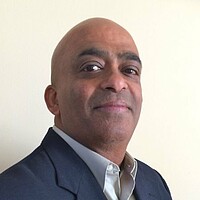Why Apple says iPhone court order violates its free speech
Loading...
Is the software code a company chooses to write a form of speech or expression?
And, by that logic, is forcing a company to write a specific program it believes violates its principles akin to compelling a student to recite the Pledge of Allegiance against his beliefs? Or forcing an organization to espouse policies it does not believe in?
That's one key question at the center of the high-profile legal battle over the San Bernardino iPhone.
Apple is making the case that the US government's attempt to force the company to write new software that would help the FBI override security protections on an iPhone recovered from terror suspect Syed Rizwan Farook is a form of compelled speech.
"The court's order discriminates on the basis of Apple's viewpoint," the company's lawyers argued in a lengthy legal brief for a California district court.
When Apple designed its iPhone operating system, the company says, it made a conscious choice to put in strong security and privacy protections – and leave out any avenue that a bad actor might be able to exploit.
Thus, the company says, forcing Apple to write a new program that leaves out critical security features – that it believes would undermine its customers’ basic security and privacy interests – "amounts to compelled speech and viewpoint discrimination in violation of the First Amendment."
As far back as the 1940s, the US Supreme Court has held that individuals cannot be compelled to speak if that speech goes against their beliefs or conscience, notes David Rudenstein, professor at Yeshiva University’s Cardozo School of Law.
Mr. Rudenstein points to a 1943 Supreme Court decision that affirmed the right of students to opt out of saying the Pledge of Allegiance if they felt it would go against their religious beliefs or conscience. A court majority said that forcing students to pledge amounted to compulsory speech and may violate individual conscience.
Later, in 1977, the Supreme Court found that a couple in New Hampshire who obscured the state's "Live Free or Die" motto embossed on state license plates could not be forced to unmask it – because that would be forcing them to display sentiments they did not agree with.
More recently, in 2013, the Supreme Court held that nongovernmental organizations that received aid from the federal government for AIDS and HIV programs could not be forced to express policies opposing prostitution.
"If we accept the notion that computer codes are speech," Rudenstein says, "then what [Apple is] saying is: 'Forcing us to develop code we don’t want to develop is compelled speech.' "
However, Rudenstein notes, it’s unclear how far Apple will be able to take the compelled speech argument in this case.
It may come down to whether the court does consider Apple's computer code as a means to express its opinions – or whether it is simply a string of 1s and 0s that carry out a technical task.
To make its case, Apple pointed to several instances in the past where courts have held that computer code can indeed be treated as speech – and protected under the meaning of the First Amendment.
One of the cases it cites is Bernstein v. US Department of Justice, a 1995 case debating a graduate student’s right to publish a mathematical paper and talk publicly about an encryption algorithm he had developed.
The US government in that case had argued that the US Arms Export Control Act and other regulations required the student to register as an arms dealer, submit the paper for review and obtain a license to publish it. The Ninth Circuit Court of Appeals in 1999 ruled that such restrictions were unconstitutional because the software source code was speech protected by the First Amendment.
Another precedent that Apple cites in its motion involves Peter Junger, a computer law professor at Case Western University, who said the government’s restrictions on publishing encryption codes on the Internet were a violation of his First Amendment Rights. In that case as well, the Sixth Circuit Court of Appeals held in 2000 that encryption software was protected as speech under the constitution.
The ruling in this case could have wide implications for Apple and the tech industry.
While the US government insists that the order centers on one specific phone, Apple notes that other officials have indicated there are many other phones waiting to be similarly unlocked. And other tech companies are watching closely to see if the case sets a legal precedent that the government can dictate the code they choose to write.
In fact, Apple CEO Tim Cook says he feels so strongly about the precedent this case might set that he’s prepared to take the case all the way to the Supreme Court.
"This is not a case about one isolated iPhone," Mr. Cook’s lawyers said in the legal brief. “Rather, this case is about the Department of Justice and the FBI seeking through the courts a dangerous power that Congress and the American people have withheld: the ability to force companies like Apple to undermine the basic security and privacy interests of hundreds of millions of individuals around the globe."








